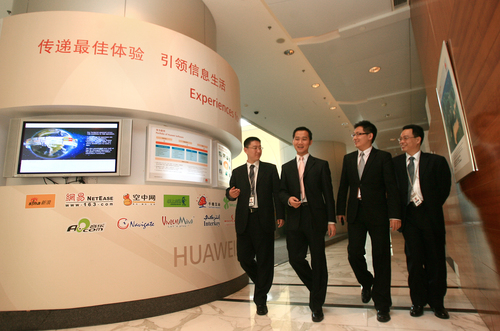
Nortel’s bankruptcy some years back was due to a host of reasons including price competition from the likes of ZTE and Huawei. Consider that while the world’s telecom equipment manufacturers were acquiring companies during a growing telecom bubble, these two stood back and focused more on imitating the best technology they could find instead of making inflated purchases in the billions of dollars.
But China is a communist/capitalist mish mosh and as such national interests can drive it to do whatever it takes to win in international markets. This is why EU Trade Commissioner Karel De Gucht is pushing a trade case against these telecom giants who are said to be receiving state subsidies in order to undercut European rivals.
Looking at this from a US perspective we have witnessed in the last ten years that the government has bailed out airlines, auto makers, GE and banks while spending billions on renewable energy and other stimulus programs designed in many cases to boost the sales of domestic companies.
The point is, how does any country determine if another country is competing unfairly anymore?
Recently Federal Reserve Chairman Ben Bernanke announced QE3 which many refer to as QE infinity because like other QE efforts it prints money but in this case it continues to print money until further notice.
The idea is to lower the value of the US dollar while inflating things like the stock market to increase consumer confidence.
The world in fact is in a race it seems to see who can lower its currency the fastest because your exports do best when you currency is valued lower than the next country.
In other words if the euro drops half its value overnight, all of the sudden people in the market for a Honda and Buick can buy a Mercedes for the same amount.
Of course I am not defending China – they do have many inherent advantages when competing against the rest of the world like a population that will do any job for almost no money because it beats starving. But they do artificially reduce the value of their currency which makes it an attractive place to manufacture.
The challenge as I see it is with the global economy being stuck in neutral, if not reverse – countries will increasingly fight one another with accusations of competing unfairly.
So now the issue becomes do we see global trade wars as a result? Or will this conflict end in a more amicable fashion with companies competing more on innovation?
The resolution of this EU case may portend the future but for those politicians reading this post, it is tough to negotiate from a position of strength when you enable corporate welfare on a massive scale.





